
What has led us to this point?
The Industrial Revolution marks a major turning point in the history of the world. Indeed, almost every aspect of daily life was influenced in some way. The population growth and GDP per capita had been broadly stable for thousands of years, and suddenly the average income and the size of the human population began to exhibit unprecedented growth during this new era. However, it is a growth that we acknowledge now, 200 years later, as being harmful to the overall fragile balance of Nature.
The unsustainable model of development associated with the Industrial Revolution has led us to where we are today – a “house on fire.” But how could the trajectory of one single species succeed in hijacking the journey of millions of others and even jeopardize life itself?
The core underlying principle of the Industrial Revolution was based on more, more and more. Adding new basic materials, chiefly iron and steel, adding the use of new energy sources, including fuels and motive power such as coal and petroleum, adding new machines ... The list goes on and on to lead us to the ever-increasing accumulation of carbon and other greenhouse gases in the atmosphere, more growth, more shareholder value, etc.
Can we simply reverse the problem?
Thus, at first glance, unravelling the devastating effect of the past seems very simple. The answer lies in fixing the source of the problem that created it: we just need more of less and less! Less of harmful sources of energy, less of harmful lifestyles, less of harmful pollution, etc. In short, less of anything that is contributing to an unsustainable model of development.
Bu hikaye Heartfulness eMagazine dergisinin February 2021 sayısından alınmıştır.
Start your 7-day Magzter GOLD free trial to access thousands of curated premium stories, and 9,000+ magazines and newspapers.
Already a subscriber ? Giriş Yap
Bu hikaye Heartfulness eMagazine dergisinin February 2021 sayısından alınmıştır.
Start your 7-day Magzter GOLD free trial to access thousands of curated premium stories, and 9,000+ magazines and newspapers.
Already a subscriber? Giriş Yap
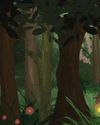
A Flower from THE HEAVENS
November 14 is Children's Day. This year, SARA BUBBER brings to you a world of forests, magical flowers, festivals, and some animals you may have never seen.

Meeting Phenomenal Women
The author, CHITRA BANERJEE DIVAKARUNI, is interviewed here by TARA KHANDELWAL and MICHELLE D'COSTA about her books on mythology, like The Palace of Illusions, which is a retelling of the Mahabharata from Draupadi's point of view, and The Forest of Enchantments, which is a retelling of the Ramayana, from the eyes of Sita. And there's The Last Queen, which is about Rani Jindan's life.
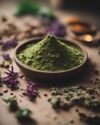
HERBAL TOOTH POWDERS: Rediscovering Ayurveda's Natural Secrets
SRAVAN BANDA presents a natural herbal tooth powder, offering a holistic approach to oral hygiene, harnessing the power of medicinal herbs.

The Dance of Light and Shadow Lessons from the Dolomites
ALAIN DESVIGNE explores the Dolomites, listed as a UNESCO World Heritage Site in 2009.
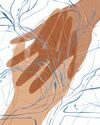
FINDING OUR WAY
A Polynesian Explorer's Journey of Discovery
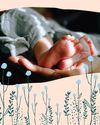
The First Imprint: Understanding PTSD
CHRISTIANNA DEICHMANN is the Director of Education at the Association for Pre and Perinatal Psychology and Health (APPPAH), where she educates both professionals and parents on fostering the most nurturing environments for welcoming new life into the world.

The Tipping Point
In this final conversation of the series, J. FREDERICK ARMENT continues to talk with CHRISTINE JONES about promoting peace in the world.
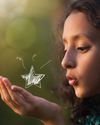
UNLOCK YOUR POTENTIAL
Take The Brighter Minds Path To Cognitive Development

The Intrinsic Goodness of the Heart
DAAJI shares some thoughts on heartfelt acceptance and all it has to offer. He says, \"It is the heart's intrinsic goodness that allows us to accept everything as part of us.
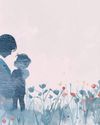
How Does Fear Affect Our Roles as Mothers? - Neelam Shivhare explores some of the great ancient texts of India on motherhood, compares the behavior of Kaikayi and Yashoda
Neelam Shivhare explores some of the great ancient texts of India on motherhood, compares the behavior of Kaikayi and Yashoda, and realizes the importance of removing fear from our hearts in order to nurture our children.For young women like myself, who are future mothers, I trust we are on the path of becoming selfaware and brutally honest with ourselves. We are creative beings, never forgetting the gifts with which we have been bestowed— the love and tenderness, natural instincts, and intuition to feel the right path. It all lies in the mysterious meanderings of the heart. Are we really listening to our hearts, or confusing the bombarding information on social media with reality?